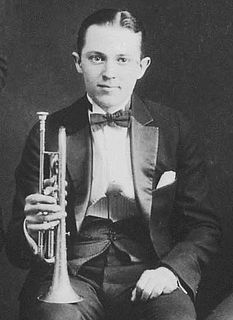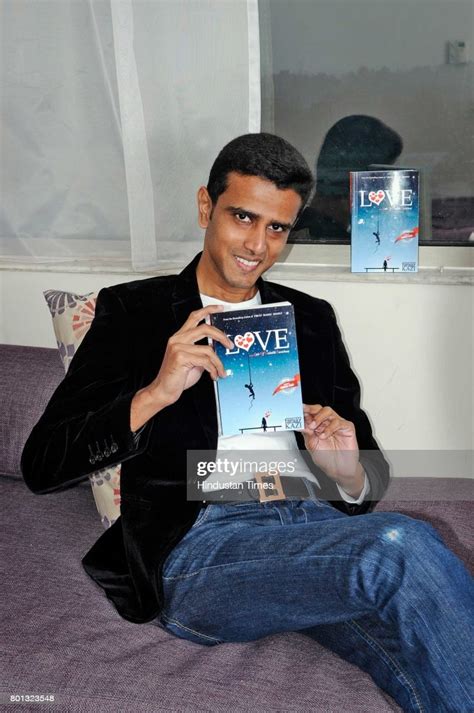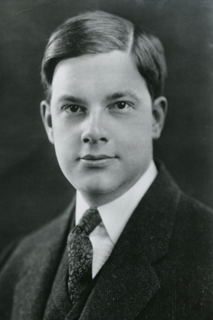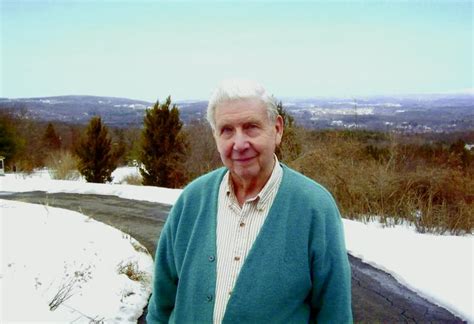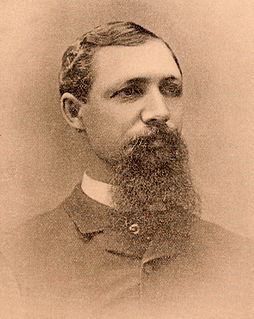Top 464 Anguish Quotes & Sayings - Page 8
Explore popular Anguish quotes.
Last updated on November 18, 2024.
The humor of jazz is rich and many-sided. Some of it is obvious enough to make a dog laugh. Some is subtle, wry-mouthed, or back-handed. It is by turns bitter, agonized, and grotesque. Even in the hands of white composers it involuntarily reflects the half-forgotten suffering of the negro. Jazz has both white and black elements, and each in some respects has influenced the other. It's recent phase seems to throw the light of the white race's sophistication upon the anguish of the black.
The playfulness that I talk about comes very slowly. You cannot just jump out of your seriousness which you have accumulated for lives. Now it has a force of its own. It is not a simple matter to relax; it is one of the most complex phenomena possible, because all that we are taught is tension, anxiety, anguish. Seriousness is the very core the society is built around. Playfulness is for small children, not for grown-up people. And I am teaching you to be children again, to be playful again. It is a quantum leap, a jump...but it takes time to understand.
Emily suffers no more from pain or weakness now. She will never suffer more in this world. She is gone after a hard, short conflict...Yes there is no Emily in time or on earth now. Yesterday we put her poor, wasted, mortal frame quietly under the chancel pavement. We are very calm at present. Why shoud we be otherwise? The anguish of seeing her suffer is over; the spectacle of the pains of death is gone by; the funeral day is past. We feel she is at peace. No need now to trouble for the hard frost and the keen wind. Emily does not feel them.
How shall I admire, how laugh, how rejoice, how exult, when I behold so many
proud monarchs groaning in the lowest abyss of darkness; so many
magistrates liquefying in fiercer flames than they ever kindled against the
Christians; so many sages philosophers blushing in red-hot fires with their
deluded pupils; so many tragedians more tuneful in the expression of their
own sufferings; so many dancers tripping more nimbly from anguish then
ever before from applause.
Those who say they believe in God and yet neither love nor fear Him, do not in fact believe in Him but in those who have taught them that God exists. Those who believe that they believe in God, but without any passion in their heart, any anguish of mind, without uncertainty, without doubt, without an element of despair even in their consolation, believe only in the God-idea, not in God.
If God does not exist, and if religion is an illusion that the majority of men cannot live without ... let men believe in the lies of religion since they cannot do without them, and let then a handful of sages, who know the truth and can live with it, keep it among themselves. Men are then divided into the wise and the foolish, the philosophers and the common men, and atheism becomes a guarded, esoteric doctrine - for if the illusions of religion were to be discredited, there is no telling with what madness men would be seized, with what uncontrollable anguish.
Literature presents you with alternate mappings of the human experience. You see that the experiences of other people and other cultures are as rich, coherent, and troubled as your own experiences. They are as beset with suffering as yours. Literature is a kind of legitimate voyeurism through the keyhole of language where you really come to know other people's lives--their anguish, their loves, their passions. Often you discover that once you dive into those lives and get below the surface, the veneer, there is a real closeness.
Though we are many, each of us is achingly alone, piercingly alone. Only when we confess our confusion can we remember that he was a gift to us and we did have him. He came to us from the creator, trailing creativity in abundance. Despite the anguish, his life was sheathed in mother love, family love, and survived and did more than that. He thrived with passion and compassion, humor and style. We had him whether we know who he was or did not know, he was ours and we were his.
Lord, with what care hast Thou begirt us round! Parents first season us; then schoolmasters deliver us to laws; they send us bound to rules of reason, holy messengers, pulpits and Sundays, sorrow dogging sin, afflictions sorted, anguish of all sizes, fine nets and stratagems to catch us in, bibles laid open, millions of surprises, blessings beforehand, ties of gratefulness, the sound of glory ringing in our ears: without, our shame; within, our consciences; angels and grace, eternal hopes and fears. Yet all these fences and their whole array one cunning bosom-sin blows quite away.
It tore my heart out, because I heard his voice. The wolves sang slowly behind him, bittersweet harmony, but all I heard was Sam. His howl trembled, rose, fell in anguish. I listened for a long time. I prayed for them to stop, to leave me alone, but at the same time I was desperately afraid they would. Long after the other voices had dropped away, Sam kept howling, very soft and slow. When he finally fell silent, the night felt dead.
Toska - noun /?t?-sk?/ - Russian word roughly translated as sadness, melancholia, lugubriousness. "No single word in English renders all the shades of toska. At its deepest and most painful, it is a sensation of great spiritual anguish, often without any specific cause. At less morbid levels it is a dull ache of the soul, a longing with nothing to long for, a sick pining, a vague restlessness, mental throes, yearning. In particular cases it may be the desire for somebody of something specific, nostalgia, love-sickness. At the lowest level it grades into ennui, boredom.
Love never comes with a brochure of rules and regulations, a prospectus with guides of what is acceptable and what is abominable. It’s a standard to follow your heart, and that’s what I did and if doing that hurt you, then I’m sorry… sorry for coming in your life and wasting your time, for causing you an anguish so great that you could not bear the sight of me. Today, I am proud to stand up and honour myself and proclaim to the world… yes, I loved someone more than myself. I loved someone truly, madly, deeply!
When I think of Britain, I don't think of these lofty ideals which once held sway like the stoic upper lip. I think of girls on a Saturday night outside kebab shops stabbing each other with stiletto heels or guys smashing glasses into someone's face. I think of shows like Big Brother which celebrate people's discomfort and anguish or kids committing these terrifying happy slapping acts of brutality to each other at the drop of a hat.
In that inevitable, excruciatingly human moment, we are offered a powerful choice. This choice is perhaps one of the most vitally important choices we will ever make, and it determines the course of our lives from that moment forward. The choice is this: Will we interpret this loss as so unjust, unfair, and devastating that we feel punished, angry, forever and fatally wounded-- or, as our heart, torn apart, bleeds its anguish of sheer, wordless grief, will we somehow feel this loss as an opportunity to become more tender, more open, more passionately alive, more grateful for what remains?
There is much to be done, there is much that can be done... One person of integrity, can make a difference, a difference of life and death. As long as one dissident is in prison, our freedom will not be true. As long as one child is hungry, our lives will be filled with anguish and shame. What all these victims need above all is to know that they are not alone; that we are not forgetting them, that when their voices are stifled we shall lend them ours, that while their freedom depends on ours, the quality of our freedom depends on theirs.
There is a marvelous story of a man who once stood before God, his heart breaking from the pain and injustice in the world. "Dear God." he cried out, "look at all the suffering, the anguish and distress in your world. Why don't you send help?" God responded,"I did send help. I sent you." When we tell our children that story, we must tell them that each one of them was sent to help repair the broken world-and that it is not the task of an instant or of a year, but of a lifetime.
There are some women who seem to be born without fear, just as there are people who are born without the ability to feel pain. The painless ones go around putting their hands on hot stoves, freezing their feet to the point of gangrene, scalding the lining of their throats with boiling coffee, because there is no warning anguish. Evolution does not favour them. So too perhaps with the fearless women, because there aren't very many of them around. ... Providence appears to protect such women, maybe out of astonishment.
There is much pain that is quite noiseless; and vibrations that make human agonies are often a mere whisper in the roar of hurrying existence. There are glances of hatred that stab and raise no cry of murder; robberies that leave man or woman for ever beggared of peace and joy, yet kept secret by the sufferer --committed to no sound except that of low moans in the night, seen in no writing except that made on the face by the slow months of suppressed anguish and early morning tears. Many an inherited sorrow that has marred a life has been breathed into no human ear.
Desire means you are dragged out of the moment; that creates a tension, that creates anxiety, that creates hope. And then finally hope turns sour, becomes frustration. Each hope leads you into anguish. Buddha calls it the only impurity. Cut the roots of desire, live in the moment so totally, pull yourself out of the past and don`t project yourself into the future. Let this moment be all and all. And your life will have such a purity, such a crystal-clear consciousness that right now you cannot imagine.
You have to take the responsibility totally, that it is you who decides either to be in misery or to be in blessing. If you want misery, have more desires. If you want a blissfulness, then learn the art - even for few moments - of being desireless, and you will be surprised. Even for a few moments, if you are desireless, all anguish, all anxiety disappears. And you are so contented, so fulfilled, that you cannot ask for more. Your blessing is so much that you can only say that you bless the whole existence. Still it will be there. It is so much; it is overflowing.
When writers are self-conscious about themselves as writers they often keep a great distance from their characters, sounding as if they were writing encyclopedia entries instead of stories. Their hesitancy about physical and psychological intimacy can be a barrier to vital fiction. Conversely, a narration that makes readers hear the characters' heavy breathing and smell their emotional anguish diminishes distance. Readers feel so close to the characters that, for those magical moments, they become those characters.
IN MEMORIAM: FLORENCE NIGHTINGALE
She whom we love, our Lady of Compassion,
Can never die, for Love forbids her death.
Love has bent down in his old kindly fashion,
And breathed upon her his immortal breath.
On wounded soldiers, in their anguish lying,
Her gentle spirit shall descend like rain.
Where the white flag with the red cross is flying,
There shall she dwell, the vanquisher of pain.
We have turned doctors into gods and worship their deity by offering up our bodies and our souls - not to mention our worldly goods. And yet paradoxically, they are the most vulnerable of human beings. Their suicide rate is eight times the national average. Their percentage of drug addiction is one hundred times higher And because they are painfully aware that they cannot live up to our expectations, their anguish is unquantifiably intense. They have aptly been called 'wounded healers.' " ~ Barney Livingston, M.D. (Doctors, 1989)
I mean, her father was an alcoholic, and her mother was the suffering wife of a man who she could never predict what he would do, where he would be, who he would be. And it's sort of interesting because Eleanor Roosevelt never writes about her mother's agony. She only writes about her father's agony. But her whole life is dedicated to making it better for people in the kind of need and pain and anguish that her mother was in.
Religion would certainly be more relevant to the hurting masses of humanity if people could express their hopes and dreams and pain and anguish to one another in the context of religious worship. As it is now our services are so antiseptic and sterile that people gathering for worship relate to others at only the most superficial level, and hardly ever get to know one another. . . . Maybe that is one of the reasons why people feel religion is irrelevant, because they cannot find support and solace during times of crisis and pain. That is when real religion should be at its best.
For now, oh my God, it is to You alone that I can talk, because nobody else will understand. I cannot bring any other man on this earth into the cloud where I dwell in Your light, that is, Your darkness, where I am lost and abashed. I cannot explain to any other man the anguish which is Your joy nor the loss which is the Possession of You, nor the distance from all things which is the arrival in You, nor the death which is the birth in You because I do not know anything about it myself and all I know is that I wish it were over - I wish it were begun.
I live to the rhythm of my country and I cannot remain on the sidelines. I want to be here. I want to be part of it. I want to be a witness. I want to walk arm in arm with it. I want to hear it more and more, to cradle it, to carry it like a medal on my chest. Activism is a constant element in my life, even though afterwards I anguish over not having written 'my own things.' Testimonial literature provides evidence of events that people would like to hide, denounces and therefore is political and part of a country in which everything remains to be done and documented.
I kept finding the same anguish, the same doubt; a self-contempt that neither irony nor intellect seemed able to deflect. Even DuBois’s learning and Baldwin’s love and Langston’s humor eventually succumbed to its corrosive force, each man finally forced to doubt art’s redemptive power, each man finally forced to withdraw, one to Africa, one to Europe, one deeper into the bowels of Harlem, but all of them in the same weary flight, all of them exhausted, bitter men, the devil at their heels.
One realizes that human relationships are the tragic necessity of human life; that they can never be wholly satisfactory, that every ego is half the time greedily seeking them, and half the time pulling away from them. In those simple relationships of loving husband and wife, affectionate sisters, children and grandmother, there are innumerable shades of sweetness and anguish which make up the pattern of our lives day by day, though they are not down in the list of subjects from which the conventional novelist works.
Christ walked the path every mortal is called to walk so that he would know how to succor and strengthen us in our most difficult times. He knows the deepest and most personal burdens we carry. He knows the most public and poignant pains we bear. He descended below al such grief in order that he might lift us above it. There is no anguish or sorrow or sadness in life that he has not suffered in our behalf and borne away upon his own valiant and compassionate shoulders.
I believe that it would be almost impossible to find anywhere in America a black man who has lived further down in the mud of human society than I have; or a black man who has been any more ignorant than I have; or a black man who has suffered more anguish during his life than I have. But it is only after the deepest darkness that the greatest joy can come; it is only after slavery and prison that the sweetest appreciation of freedom can come.
Most of us live our lives desperately trying to conceal the anguishing gap between our polished, aspirational, representational selves and our real, human, deeply flawed selves. Dunham lives hers in that gap, welcomes the rest of the world into it with boundless openheartedness, and writes about it with the kind of profound self-awareness and self-compassion that invite us to inhabit our own gaps and maybe even embrace them a little bit more, anguish over them a little bit less.
People between twenty and forty are not sympathetic. The child has the capacity to do but it can't know. It only knows when it is no longer able to do -after forty. Between twenty and forty the will of the child to do gets stronger, more dangerous, but it has not begun to learn to know yet. Since his capacity to do is forced into channels of evil through environment and pressures, man is strong before he is moral. The world's anguish is caused by people between twenty and forty.
Art thou in misery, brother? Then I pray Be comforted. Thy grief shall pass away. Art thou elated? Ah, be not too gay; Temper thy joy: this, too, shall pass away. Art thou in danger? Still let reason sway, And cling to hope: this, too, shall pass away. Tempted art thou? In all thine anguish lay One truth to heart: this, too, shall pass away. Do rays of loftier glory round thee play? Kinglike art thou? This, too, shall pass away! Whate'er thou art, wher'er thy footsteps stray, Heed these wise words: This, too, shall pass away.
There whil'st the world prov'd prodigal of breath, the headless trunks lay prostrated in heaps; this field of funerals sacred unto death, did paint out horror in most hideous shapes: whil'st men unhors'd, horses unmast'red, stray'd, some call'd on those whom they most dearly lov'd, some rag'd, some groan'd, some sigh'd, roar'd, promis'd, pray'd, as blows, falls, faintness, pain, hope, anguish mov'd.
Why should you row a boat race? Why endure the long months of pain in preparation for a fierce half hour that will leave you all but dead? Does anyone ask the question? Is there anyone who would not go through all the costs, and more, for the moment when anguish breaks into triumph or even for the glory of having nobly lost? Is life less than a boat race? If a man will give the blood in his body to win the one, will he spend all the might of his soul to prevail in the other?
Hell is hot, fire. But I tell you, you are providing your own coal. This is how things are: If you move against nature you will be in misery. Misery means moving against nature, and misery is a good indication - if you understand. It shows that somewhere you are going wrong, that's all. Put things right! Misery is a help. Anguish, anxiety, tension, are indications that somewhere something is going wrong. You are not with the total. Somewhere you have started your own private movement - and then you will be in misery.
People with mental problems are our neighbors. They are members of our congregations, members of our families; they are everywhere in this country. If we ignore their cries for help, we will be continuing to participate in the anguish from which those cries for help come. A problem of this magnitude will not go away. Because it will not go away, and because of our spiritual commitments, we are compelled to take action.
And some day there will be nothing left of everything that has twisted my life and grieved it and filled me so often with such anguish. Some day, with the last exhaustion, peace will come and the motherly earth will gather me back home. It won't be the end of things, only a way of being born again, a bathing and a slumbering where the old and the withered sink down, where the young and new begin to breathe. Then, with other thoughts, I will walk along streets like these, and listen to streams, and overhear what the sky says in the evening, over and over and over.
The supernatural Christ of the New Testament, the god of orthodox Christianity, is dead. But priestcraft lives and conjures up the ghost of this dead god to frighten and enslave the masses of mankind. The name of Christ has caused more persecutions, wars, and miseries than any other name has caused. The darkest wrongs are still inspired by it. The wails of anguish that went up from Kishenev, Odessa, and Bialystok still vibrate in our ears.
Anecdote: In a controversial way, Comedian and actor Bill Cosby sought to teach his son the pain of being lied to. Convinced his son had been dishonest regarding an issue, Cosby promised that if he told him the truth, he would not hit him. When his son did confess, Cosby did hit him. Seeing his son's shock and hurt, Cosby said he hoped this lesson had deepened his understanding of the anguish generated by a sense betrayal.
How much can we ever know about the love and pain in another's heart? How much can we hope to understand those who have suffered deeper anguish, greater deprivation, and more crushing disappointments than we ourselves have known? Even if the world's rich and powerful were to put themselves in the shoes of the rest, how much would they really understand the wretched millions suffering around them? So it is when Orhan the novelist peers into the dark corners of his poet friend's difficult and painful life: How much can he really see?
Why are we worn out? Why do we, who start out so passionate, brave, noble, believing, become totally bankrupt by the age of thirty or thirty-five? Why is it that one is extinguished by consumption, another puts a bullet in his head, a third seeks oblivion in vodka, cards, a fourth, in order to stifle fear and anguish, cynically tramples underfoot the portrait of his pure, beautiful youth? Why is it that, once fallen, we do not try to rise, and, having lost one thing, we do not seek another? Why?
So silently, peacefully, without hurry, without any tension, without any anguish, move into yourself instantly. It is urgent. Unless meditation becomes urgent to you, it will never happen; you will die before it. Put meditation on your laundry list as the most important, urgent... number one. But meditation in your life is just at the very end of your laundry list - and the laundry list goes on becoming bigger and bigger. And before you finish your laundry list, you are finished, so the time for meditation never comes.
